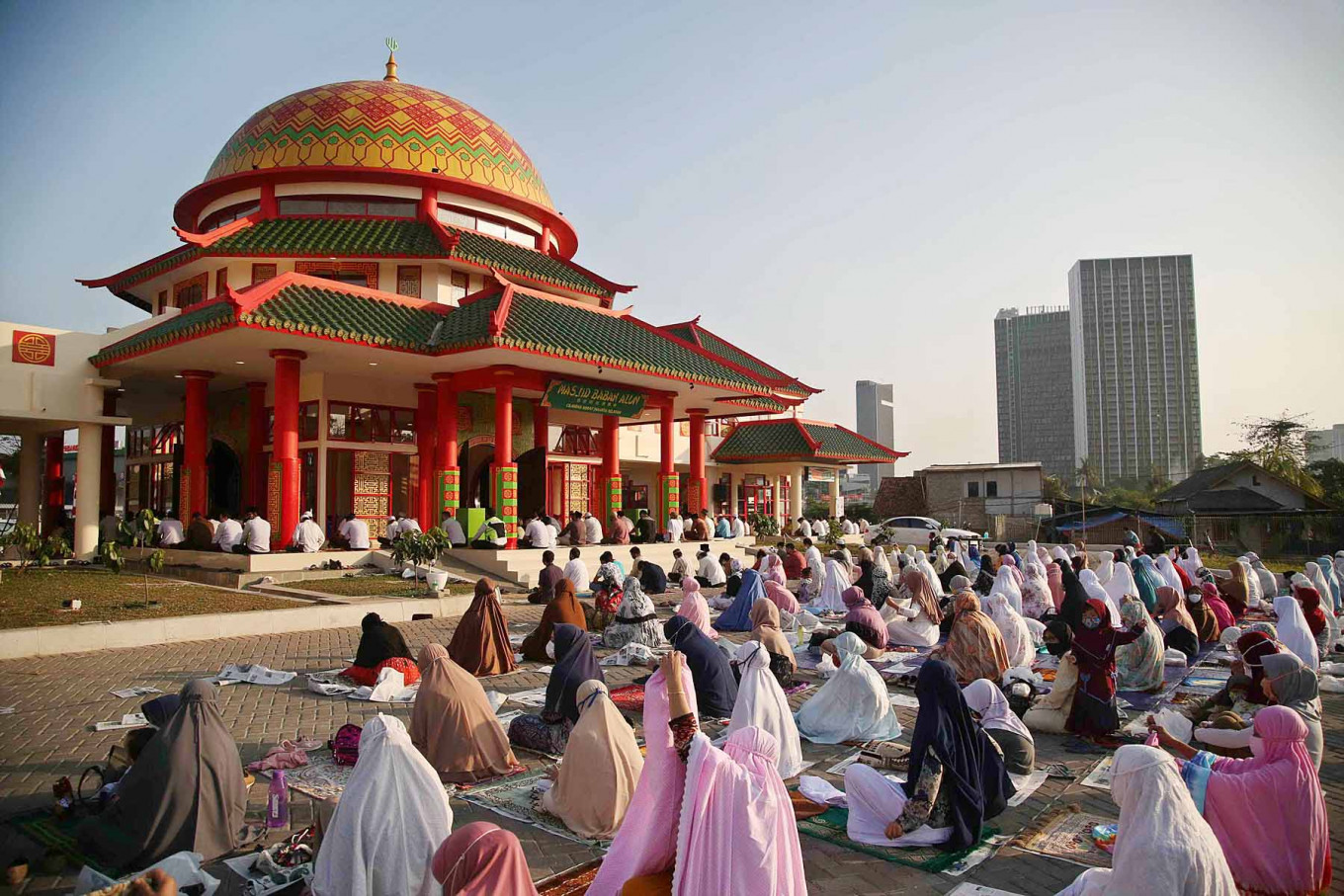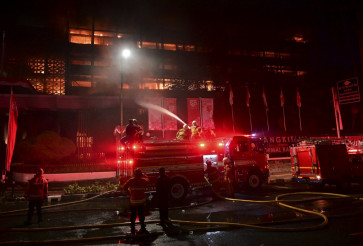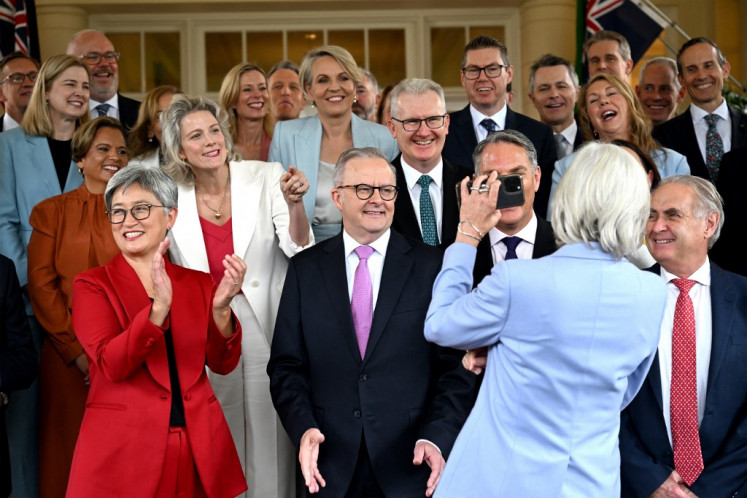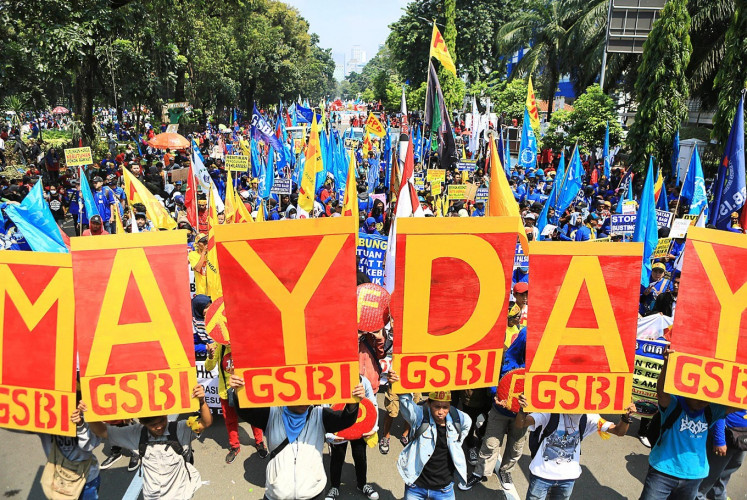Proposed govt control over places of worship draws criticism
A proposal from the BNPT to place houses of worship under government control has drawn pointed criticisms from leaders of religious organizations and civil groups, who have warned that such a measure risked violating human rights and curbing religious freedom.
Change text size
Gift Premium Articles
to Anyone

R
eligious organizations and civil groups have criticized a proposal from the National Counterterrorism Agency (BNPT) on the government directly controlling and monitoring places of worship in its fight against extremist ideologies, fearing this could restrict religious freedom in the country.
BNPT head Comr. Gen. Rycko Amelza Dahniel presented the proposal on Monday in a meeting with House of Representatives Commission III overseeing legal affairs. He suggested that the government needed a new mechanism to control and monitor places of worship to curb the spread of extremist ideologies.
Rycko said the proposed mechanism was drawn from the BNPT’s observation of several countries including Malaysia, Singapore, Oman and Saudi Arabia, where governments controlled who could work at houses of worship, especially religious leaders and teachers.
“We need to regulate who can preach in places of worship and what they teach, so such places do not become an instrument for spreading violence and hate, or an outlet to insult our leaders and the government,” he said.
Read also: A better way: How rehabilitated terrorists are helping counter extremism
Concerns have been rising in recent years over the spread of violent extremism in places of worship across the country.
In 2020, the Institute for Policy Analysis of Conflict (IPAC) published a report on its study of extremist groups in West Sumatra that questioned the government’s approach in tackling radicalization and extremist ideologies.
While authorities saw extremism as a lack of nationalism that could be solved through indoctrination in the Pancasila state ideology, IPAC believed the problem was more clear-cut, such as a mosque hosting extremist discussions for more than 10 years without any attention from local officials.
In 2018, the State Intelligence Agency (BIN) reported its finding that dozens of places of worship in Jakarta were preaching extremist ideologies to their congregations, of which the majority were civil servants working at nearby government offices. The agency reported that some clerics expressed their support or sympathy for the Islamic State and encouraged worshippers to support jihadist groups across the world, including in Syria.
‘More harm than good’
The BNPT’s proposal was immediately met with criticisms from religious organizations.
Cholil Nafis, head of Dakwah and Ukhuwah (propagation and fraternity) at the Indonesian Ulema Council (MUI), called the proposal a violation of the freedoms of religion and of expression guaranteed in the 1945 Constitution.
“[Such a system] will make it more difficult to criticize the government,” Cholil said in a statement. “It will allow the government to exercise despotic power and coercion over religious people.”
Abdul Mut’i of Muhammadiyah, the country’s second largest Muslim organization, said proposing government control over places of worship, especially Islamic ones, was “a narrow-minded view”.
“Connecting radicalism solely to religions is no longer relevant. The root of radicalism is very complex and includes various aspects, such as social and legal injustices,” he said.
Cholil and Abdul both suggested that authorities work with religious organizations on advocating for religious moderation, rather than seeking to exercise more control over religious activities, which could backfire and increase violent anti-government extremism.
Read also: Youth dismiss violent extremism but are prone to intolerance: Survey
Gomar Gultom, chairman of the Indonesian Communion of Churches (PGI), called the BNPT’s proposal “a step backward” for the country’s democracy.
“In a more democratic society, the government must trust the people to regulate themselves, including on managing houses of worship,” he said, adding that tougher punishments for people spreading hate and intolerance might be more effective in addressing extremist ideologies.
Human rights group Setara Institute, while acknowledging that extremist and violent ideologies often spread from places of worship and religious schools, said that placing them under government control risked violating human rights.
Setara Institute executive director Halili Hasan said government control over places of worship was an excessive measure that would only lead to restricting people’s religious freedom and “do more harm than good”.
Read also: Role of women seen as vital to resisting Islamic extremism
BNPT head Rycko quickly responded to the backlash, saying that the mechanism could take the form of collaboration between authorities and the public to monitor places of worship and report any that spread hate or promoted violent extremist ideologies.
Under this collaborative mechanism, local religious leaders and residents could also report preachers suspected of spreading hate and extremist ideologies.
“We can educate them or report them to the police, if necessary,” Rycko said in a statement on Wednesday.
“We need the public’s cooperation to do this. It is impossible for the government to control all places of worship in the country.”









